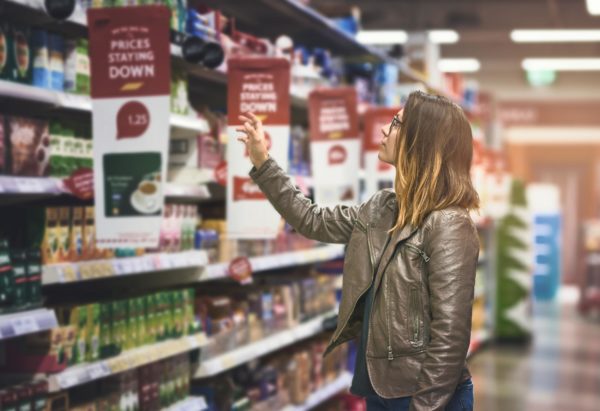
What Will Brexit do to Our Supermarket Shelves?
As the UK prepares to leave the EU later today, 30 million Brits believe Brexit will increase the price of food and produce in supermarkets

With the UK officially set to leave the EU in a matter of hours, many sectors and industries have been under scrutiny about how Brexit will impact them and their jobs. However, research from Make UK last week showed that the UK’s food and drink production industry has continued to shrug off the Brexit woes afflicting other manufacturing sectors, with employment at its highest in fifteen years.
As the UK prepares to leave the EU, the prospect of rising food prices has many concerned. The potential increase in costs could lead shoppers to seek out alternative ways to manage their grocery bills. One such solution is to explore the convenience of online supermarkets, which offer a broad selection of products and competitive pricing. By choosing to visit website platforms dedicated to online grocery shopping, consumers can compare prices and access special offers that may help mitigate the impact of higher food costs. Despite the uncertainties surrounding Brexit, online supermarkets are adapting to meet evolving consumer needs.
If you’re looking for an efficient way to handle your grocery shopping without the stress of in-store trips, check this website: TNS-Go. By leveraging the resources available on TNS-Go, you can streamline your shopping experience, find great deals, and ensure that you’re getting the best value for your money. The ease of navigating online platforms allows you to make well-informed decisions and manage your grocery budget more effectively.
However, while the sector itself seems to be coping well with Brexit, the same may not be said for the UK’s consumers, a huge proportion of which are fearful of the potentially considerable increase in prices for everyday foods.
It is clear to see that, despite the fact that the result of the 2016 referendum is finally being upheld, an even greater proportion of the population that voted to leave, are now expressing grave concern at the potential effects of Brexit on their daily shopping.
For consumers, the threat of a no-deal may be worrying and some may be tempted to begin stockpiling. However, this tactic may not be effective, given that goods that can typically be stockpiled are those that are unlikely to be affected by Brexit. It is the fresh produce, such as meat and cheese, which is most likely to be in short supply in the short term following Brexit.
For retailers, there are obviously concerns from all sides, and the industry need to ensure that customers are fully informed and aware of any potential delays and shortages. It is clear that there are supply chain concerns from the industry and retailers are working to try and alleviate any potential issues, however, they need greater assurances from politicians in both the UK and in Europe.
With Brexit taking place later today, Ubamarket has this past week conducted nationally representative research across a sample of over 2,000 UK adults, revealing how Brits feel Brexit is going to affect food prices on their weekly shop:
- 59% of Brits (30 million) believe that Brexit will increase the price of food and produce in supermarkets
- 57% of Brits (29.5 million) believe that Brexit will make European goods in supermarkets considerably more expensive
Will Broome, CEO and Founder of Ubamarket says:
‘I would urge all parties to come together to try and sort out a workable solution for everyone to ensure that food shortages are kept to a minimum across the winter period and as UK supply builds up as we approach summer 2020.’












































